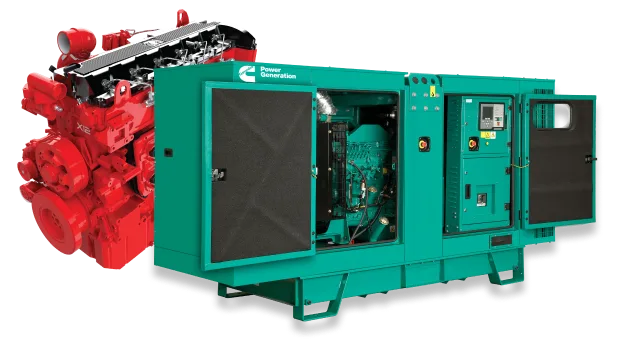Electric generators play a crucial role in ensuring a continuous and reliable power supply, especially in situations where the primary grid may be unreliable or unavailable. Whether you’re running a data center, a healthcare facility, or simply ensuring backup power for your home, the importance of electric generators cannot be overstated. However, the effective utilization of these generators necessitates a comprehensive understanding of their types, sizing, installation, maintenance, and troubleshooting. This is where generator consultancy and assistance become indispensable.
Generator Assistance
Proper sizing and installation of generators are critical to ensuring a reliable backup power source.
Peak and Continuous Load Demands: Generator sizing depends on the peak and continuous loads your facility or equipment demands. Peak loads, which are temporary and occur when equipment starts, need to be accommodated.
The Role of Load Factors: Load factors, like power factor and diversity factor, influence generator size. Professionals can assess your specific load requirements and help you avoid under-sizing or over-sizing the generator.
Proper Generator Sizing
Factors Affecting Sizing: Sizing involves considering factors such as the type of load, location, and the required level of redundancy. Proper sizing ensures that your generator can handle the load without overloading or underutilizing it.
The Importance of Professional Assistance: Engaging generator consultancy services is essential in determining the optimal generator size, as they have the expertise to consider all relevant variables and ensure that the system operates at peak efficiency.
Installation Best Practices
Location and Safety Considerations: Generator placement, ventilation, and safety measures are paramount. A professional can help determine the ideal location to ensure safety and easy maintenance access.
Electrical and Fuel Connections: Accurate electrical and fuel connections are vital for generator operation. Skilled installation ensures that all components are correctly integrated.
Maintenance and Troubleshooting
Regular maintenance and the ability to troubleshoot issues are essential for the longevity and reliability of electric generators.
Routine Generator Maintenance
Fuel System Checks: Routine checks of the fuel system, including filters and fuel quality, ensure a steady fuel supply and prevent engine damage.
Lubrication and Cooling: Proper lubrication and cooling system maintenance prevent overheating and ensure the engine operates smoothly.
Electrical System Inspection: Checking the electrical components, including wiring and connections, is crucial to prevent electrical failures that could disrupt power supply.
Troubleshooting Common Generator Issues
Overheating: Overheating can lead to engine damage and power loss. Understanding the causes and having a troubleshooting plan in place is crucial.
Fuel Supply Problems: Generator fuel supply issues, such as blockages or fuel quality concerns, can be addressed through a systematic troubleshooting approach.
Electrical Failures: Troubleshooting electrical failures is critical for ensuring that the generator can supply power when needed. Professionals can diagnose and rectify these issues efficiently.
In conclusion, the world of electric generators is multifaceted, requiring expert knowledge and consultation to make informed decisions. Whether it’s choosing between diesel and natural gas generators, determining the right size, ensuring proper installation, or maintaining and troubleshooting your equipment, seeking professional assistance by AON is the key to reliability and peace of mind in times of power outages.
